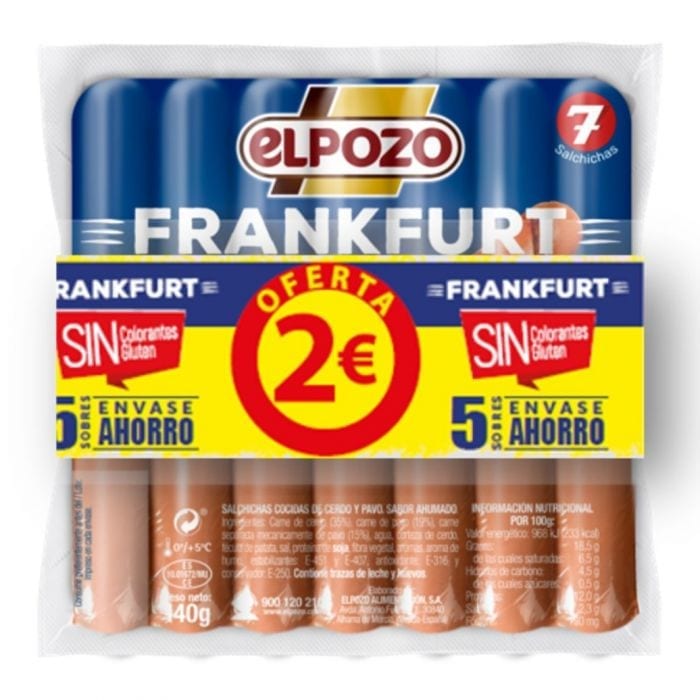La European Union has become serious. From next April 1 a new decree will enter into force that includes a series of guidelines to avoid misleading and confusing food information. The objective is to avoid that on food labels there are names or adjectives that do not really correspond to the ingredients used. It is the case of those Paellas that are marketed as "Valencian" when, in reality, the rice is not even Spanish. A clear and Spanish example among many others that end up confusing the consumer. Both since FIAB as Facua have valued this new measure, although it will be necessary to see How does it apply. We tell you everything about her here.
This is the regulation of the European Union
It consists only of three pages, it is very brief but makes it clear that what it intends is to end all that misleading food information. Before entering this matter, we explain to you what the European Union refers to by this. Because if you are not used to looking at labels of the food you buy, in the specific section of your ingredients and origin of the same, maybe now you will. Of course, in cases that may lead to such a specific query.
Because if you read in a container «Valencian paella», the normal thing would be that the rice came from Spain. However, examples of origin in another country have been found, such as China. The same happens with the «Italian lambrusco» wine whose grape is not from Italy. These types of practices that do not conform to reality want to be stopped by the UE through an order that forces to specify even more. Thus, if a label indicates the country of origin of the food, the manufacturer must also detail where is the main ingredient from if it is of different origin.
How? With references from "EU", "outside the EU" or both, among other alternatives such as specifying that this ingredient does not originate in the country from which the product comes. Everything is to overthrow that misleading food information, although the doubts are obvious given the brevity of the decree. Another document has been published like this to complete it. Collect questions and answers.

What about the Frankfurt sausage?
The case of this food is very curious, whose popularity has made it an exception to the rule that comes into force as of April 1, 2020. Although there are perhaps more cases such as the frankfurter sausage, we will explain it to her. Because certain products have such worldwide prestige that the consumer himself no longer directly links them to his the origin. In this case, it would be the German city. However, many other companies (include Spanish such as The hole) make and label sausages next to that name.
The Murcian company does not have to comply with the decree, since this example escapes the norm as does the expression "Packed in". The same does not happen if it is written "Made in" or "produced in". From Europe reserve the power to adopt more specific provisions later to trademarks with indications of origin. Although, for now, they are not affected by the new measure. On the other hand, containers that contain: National symbols, colors of a flag, monuments, landscapes and even famous people of the country.

Reactions to the rule to curb misleading food information
Industry and consumers have reacted to this move. In general, they have done it positively, although with some caution when it comes to seeing how it is applied. From the Spanish Federation of Food and Beverage Industries (fairy tale)They believe that it "brings added value." However, they ask for "common sense" for their application. It is also the result of the doubts generated by a «complicated text, with more questions than answers». "There are many particular cases," they acknowledge.
While the Consumer Federation (Facua) considers that the importance of this new law lies in its compliance. “That it enters into force does not mean that they will comply with it. The slowness and lack of inspections by the administration can make it easier for companies to bypass this legislation, "warns the spokesman. Rubén Sánchez. Therefore, will it be effective or will it be up to those companies that want to apply it well so as not to fall into the misleading food information?







